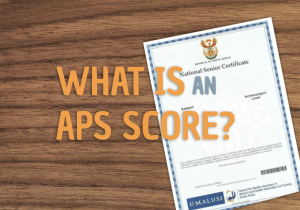It’s time to shine a spotlight on something that often gets overlooked but is absolutely critical for your academic future: your Grade 11 results. Whether you’re a Grade 11 student yourself, a Grade 12 student, or someone who knows a Grade 11 learner, spread the word. The decisions you make and the effort you put in during this your Grade 11 year can make all the difference when it comes to unlocking doors to your dream university course or degree.
Let’s break it down and dive into why Grade 11 is not just another academic year, but a foundation for your future success.
Why Should You Care About Grade 11 Results?
When we think about academic achievement, many students (and even parents) fall into the trap of thinking that Grade 12 is the only year that matters. Yes, your final matric results are significant, but here’s the kicker: Grade 11 marks are just as important. In fact, they might even carry more weight when it comes to securing a provisional spot in university programs. Here’s why:
University Applications Depend on Grade 11 Results
The reality is, when you’re in Grade 12 and applying for university, you will submit your Grade 11 results as part of your application. Universities use these marks to assess your academic potential and decide whether to grant you a provisional acceptance for your chosen course. Your matric results will finalize your acceptance, but those Grade 11 marks are what get your foot in the door.
It’s About Booking Your Seat Early
Think of Grade 11 as the year when you’re “booking your seat” at university. Grade 12 is about keeping that seat. If you don’t take Grade 11 seriously, you could find yourself in a position where your desired course is already full or where your Grade 12 results need to work overtime to compensate for the lower marks from Grade 11. Why leave it to chance?
Can You Save Your Best for Grade 12?
Many students think, “I’ll work harder in Grade 12. I’ll save my best effort for later.” While this might sound like a good plan in theory, it’s not as simple in practice. Universities have limited spaces, and those spaces are often awarded to the top-performing students from Grade 11. If you’re putting in only minimal effort in Grade 11 and banking on a stellar performance in matric, here’s what you need to know:
Lower Chances of Provisional Acceptance
Without strong Grade 11 marks, you’ll struggle to secure a provisional acceptance. This means that even if you excel in matric, you might find yourself waiting another year to apply again. That’s a year of your life you could have spent in university, moving closer to your career goals.
Increased Stress in Grade 12
By not laying a solid foundation in Grade 11, you’re essentially doubling the pressure on yourself in matric. Grade 12 is already demanding with exams, projects, university applications, and extracurricular commitments. Why add to the stress when you could start strong in Grade 11 and maintain that momentum?
The Importance of APS
One concept that every high school learner must understand is the Admission Point Score (APS). This score determines whether you qualify for your desired university course. Different courses and institutions have different APS requirements, but here’s the general idea:
Your APS is calculated based on your final Grade 11 and Grade 12 results, with each subject contributing a certain number of points based on your percentage score. The higher your marks, the higher your APS and the better your chances of meeting the entry requirements for competitive courses like medicine, engineering, and law.
If you aim for a high APS in Grade 11, you’ll have a head start when it comes to university applications. Even if your Grade 12 results improve, a strong APS from Grade 11 ensures that you’re in a better position to qualify.
How is the APS Score Calculated?
Your APS score is a numerical value used by universities to determine your eligibility for specific courses. It’s calculated by assigning points to your percentage scores in each subject. For example:
- 80%+ = 7 points
- 70–79% = 6 points
- 60–69% = 5 points
…and so on, with Life Orientation usually contributing fewer points.
Each university and course has a minimum APS requirement. For example, Medicine might require an APS of 36+, while a teaching degree might require 24+. Know the requirements for your course and aim to exceed them in Grade 11.
What Happens If You Didn’t Try Hard in Grade 11?
While it’s always better to perform well in Grade 11, not all hope is lost if you didn’t put in your best effort. Here are some strategies for students who want to turn things around in matric:
Check the University’s Selection Criteria
Some universities will accept a combination of Grade 11 marks and June Grade 12 results for provisional acceptance. If this applies to your chosen institution, you can still redeem yourself by performing well in the first half of matric. However, this is not guaranteed, and it varies by institution.
Use Your Matric Results to Reapply
If you miss out on provisional acceptance, you can still apply to university using your final matric results. However, this often means waiting an additional year before starting your studies. While this is an option, it’s not ideal, and it’s certainly more stressful than securing your spot early with strong Grade 11 marks.
How to Maximize Your Grade 11 Results
To ensure that you’re setting yourself up for success, here are some actionable tips for Grade 11 learners:
Set Clear Academic Goals
Know the APS requirements for your desired course and aim to exceed them. Having a target will motivate you to push yourself in every subject.
Manage Your Time Effectively
Grade 11 is a demanding year, but with proper time management, you can balance your studies with other commitments. Create a study schedule and stick to it.
Seek Help Early
Struggling in a particular subject? Don’t wait until Grade 12 to address the issue. Get a tutor, join a study group, or ask your teachers for extra help.
Stay Consistent
It’s not about cramming before exams; it’s about consistent effort throughout the year. Regular revision and completing assignments on time will help you retain information better.
Take Practice Exams Seriously
Many schools conduct practice exams in Grade 11. Treat these as if they were your final exams. They’re an excellent way to identify your strengths and weaknesses.
Why Starting in Grade 11 Gives You an Edge
Grade 11 is not just preparation for matric; it’s the foundation for your academic and career goals. By the time you reach Grade 12, you’ll already have:
- A solid academic record to submit for provisional acceptance.
- Better confidence and time management skills for final exams.
- More time to focus on improving any weak areas without rushing.
- A solid understanding of most of your subjects, making it easier to build on what you’ve already learned.
Spread the Word: Grade 11 is the Foundation Year
If you’re a Grade 12 student reading this, share this message with your Grade 11 peers. If you’re a parent, encourage your Grade 11 child to take their studies seriously. If you’re in Grade 11 yourself, share this knowledge with your peers, and understand that this is your time to shine and secure your future. Together, awareness about the importance of Grade 11 results can be raised, ensuring that more students are prepared to take on the challenges of matric and beyond.
The Takeaway Message
Grade 11 is not just another year; it’s the launchpad for your future. Think of it as the year where you plant the seeds of success, and Grade 12 is where you nurture those seeds into a fruitful harvest. Start early, stay consistent, and aim high.
Remember: Grade 11 is where you set your foundation, and Grade 12 is where you solidify it.
Your academic journey is in your hands. Don’t wait until it’s too late to take control.
By following the advice in this guide, you’ll not only improve your chances of university acceptance but also reduce stress and set yourself up for long-term success. Share this with friends, family, and anyone who needs to hear it, because knowledge shared is opportunity multiplied.





